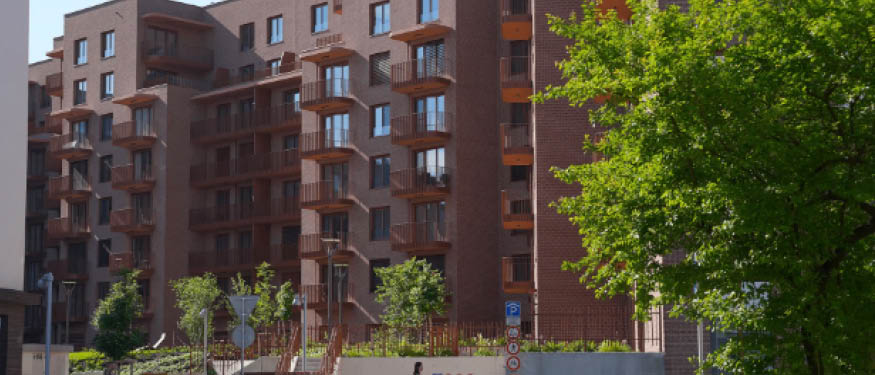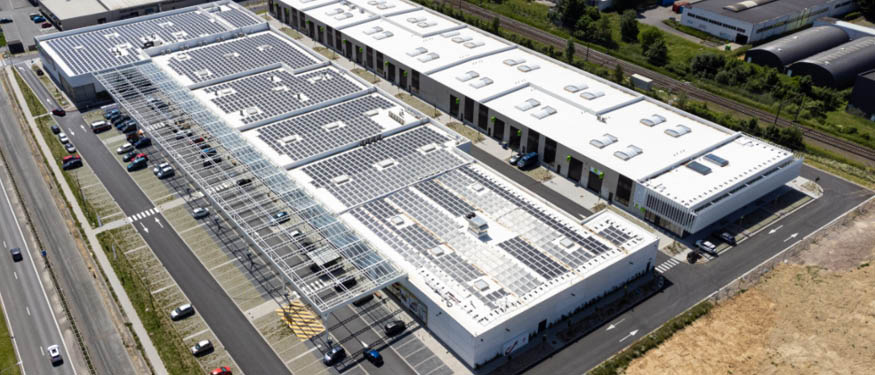Slovak lawyer Ivana Kollarova has become the Interim Deputy General Counsel at Pepco, based in Poland.
Kinstellar Advises Altenova on Pyronova-Altebra Cross-Border Merger
Kinstellar, working with Argo, has advised Altenova on its merger with Pyronova Group. KPMG Legal reportedly advised Pyronova.
Ments Advises on Launch of Running Sushi Restaurant in Bratislava’s Eurovea
Ments has advised the Running Sushi restaurant on its launch in the Eurovea shopping center in Bratislava.
Kinstellar Advises PPF Group on Sale of Home Credit Bank Kazakhstan to ForteBank
Kinstellar has advised PPF Group and its shareholders on their agreement with ForteBank for the sale of 100% of Home Credit Bank Kazakhstan and its associated businesses.
Elementz Legal Advises Bubblify on Acquisition of OXO Retail Locations
Elementz Legal has advised Bubblify International on its acquisition of 22 OXO-brand shopping center retail locations in the Czech Republic, Slovakia, and Hungary.
Dentons Advises on Over EUR 100 Million Financing for Zwirn 2 Development in Bratislava
Dentons has advised YIT Zwirn 2 – a joint venture between YIT Slovakia and RSJ Investments – on a syndicated loan exceeding EUR 100 million for the financing of Zwirn 2 real estate development in Bratislava. Allen Overy Sherman Sterling reportedly advised the banks.
If Out Shopping in Slovakia: A Buzz Interview with Bruno Stefanik of Wolf Theiss
With the European Parliament recently approving a new draft FDI regulation, significant changes are on the horizon across the EU, and Slovakia is no exception. According to Wolf Theiss Partner Bruno Stefanik, the anticipated updates will impact Slovakia’s national legislation, reshape existing FDI procedures, and offer a timely opportunity to address practical challenges identified since the country’s FDI regime took effect in 2023.
Peter Malovec Joins CTP Slovakia as Head of Legal
Former Taylor Wessing Counsel and Head of Real Estate Peter Malovec has joined CTP Slovakia as its new Head of Legal.
DLA Piper Advises The Vita Group on EUR 81.5 Million Receivables Securitization
DLA Piper has advised The Vita Group on the launch of a three-year, EUR 81.5 million trade receivables securitization program. External funding was provided by Santander Corporate and Investment Banking and Finacity Corporation, with retained funding from Vita entities.
The Corner Office: Inflationary Pressure
In The Corner Office, we ask Managing Partners at law firms across Central and Eastern Europe about their backgrounds, strategies, and responsibilities. This time around, we dug deeper into a discussion point that came up during our last event: During our annual General Counsel Summit held in Prague recently, we’ve learned that even with the inflation in CEE having hovered around 14-20% in recent years, legal fees have remained static or have even decreased in some jurisdictions. Given that, how has your firm managed to consistently deliver high-quality service under these constraints?
Slovakia: Practical Issues with Electronic Signing of Labor Documents
As digital solutions become more widespread in business operations, the use of electronic signatures for labor-related documents is increasingly common in Slovakia. However, it is crucial for both employers and employees to understand whether such signatures hold legal validity under Slovak labor law. This article examines the key points surrounding the use of electronic signatures in labor documents.
Kinstellar Advises Accolade Holding on Acquisition of GLP Kosice Logistics Park in Slovakia
Kinstellar has advised Accolade Holding on its acquisition of a 21,600-square-meter logistics facility in Kosice, eastern Slovakia. Hillbridges reportedly advised the sellers.
Slovakia: Renaissance of the Commercial Register?
The Ministry of Justice of the Slovak Republic recently presented a draft of a new legislation governing the Slovak Commercial Register, amending the Slovak Commercial Code and other acts (New Legislation).
KSB Advises J&T on EMMA Capital Bond Issuance Program
Kocian, Solc, Balastik has advised J&T on the launch of a bond issuance program for the EMMA Capital investment group. White & Case reportedly advised EMMA Capital.
What the Labor Inspectorate Is Interested In: Discrimination and Unequal Remuneration
The National Labour Inspectorate's report on the status of equality and discrimination in employment relations for the year 2024 shows that discrimination in the workplace is a hot topic.
Kinstellar Advises Mitiska REIM on EBRD’s Entry into Slovak Retail Parks Joint Venture
Kinstellar has advised Mitiska REIM investment fund Mitiska European Real Estate Partners 3 on the entry of the European Bank for Reconstruction and Development into a joint venture with property developer OPC Group for the development and operation of five retail parks in Slovakia.
Slovakia: Has the Transposition of the Equal Pay Transparency Directive Finally Gained Momentum?
According to a preliminary legislative notice issued by the Ministry of Labour, Social Affairs and Family of the Slovak Republic and published on 15 May 2025, the Ministry is preparing a draft law on pay transparency.
The Corner Office: The Next Big Thing
In The Corner Office, we ask Managing Partners at law firms across Central and Eastern Europe about their backgrounds, strategies, and responsibilities. This time around, we asked: For 2025, what is the one sector or industry in the country that shows the most promise for growth, and why?































